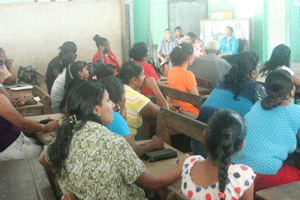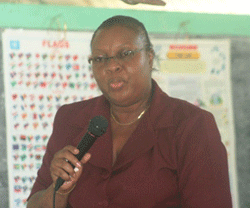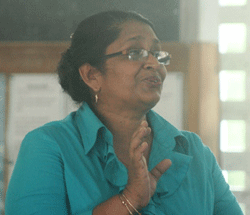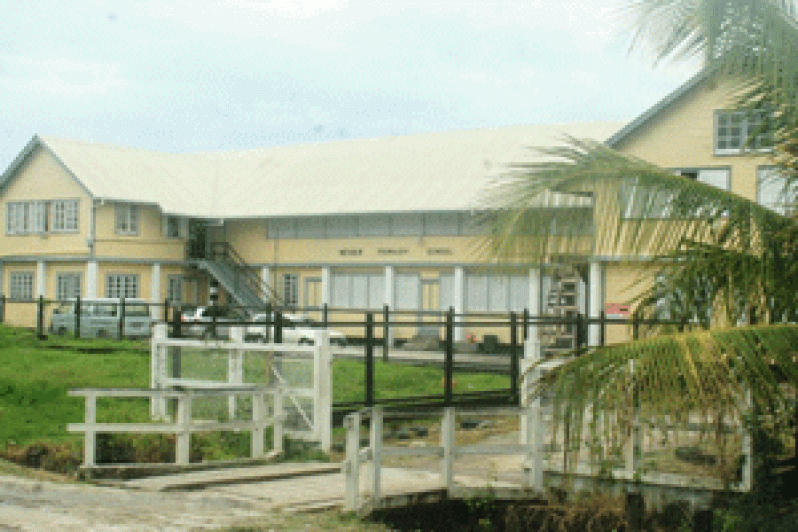PARENTS, teachers and other education stakeholders were given an opportunity to share their views and suggestions on corporal punishment and automatic promotion of students, as senior officers from the Ministry of Education hosted a consultation exercise at the Novar Primary School, Region 5.  Several such meetings have already been held across the country, in fulfillment of a commitment made by the Guyana Government during the submission of its Universal Periodic Review (UPR), to the United Nations Rights Commission on several human rights conventions in 2010.
Several such meetings have already been held across the country, in fulfillment of a commitment made by the Guyana Government during the submission of its Universal Periodic Review (UPR), to the United Nations Rights Commission on several human rights conventions in 2010.
Deputy Chief Education Officer (Admin), Donna Chapman, in her address, stated that while some countries have abolished corporal punishment in the school system, Guyana is yet to take a stand on this, hence the consultation.
Among the countries which have ended corporal punishment are United States, Canada, China, Greece, Russia and Thailand.
She stated that it is most important for the grassroots to air their concerns, as to whether it should be eliminated or retained.
“Your views are important in this decision-making…we don’t want you to come here and to not say anything and when a decision is made, you say, well I had other views,” she said.
The UN convention on the Rights of the Child outlines that a child should not be beaten, and while several countries have signed the pact to eliminate corporal punishment, government is currently garnering the views of society before a formal decision is made in the National Assembly.
At present, the Education Act Chapter 902 paves the way for corporal punishment in schools, but it can only be administered with the permission of a Headteacher and in a standard manner. Since the initiation of the consultation exercises, there have been differing views offered, as some are of the opinion that children should be beaten, while others describe the act as a violation of children’s rights.
Since the initiation of the consultation exercises, there have been differing views offered, as some are of the opinion that children should be beaten, while others describe the act as a violation of children’s rights.
On the issue of automatic promotion in the school system, Assistant Chief Education Officer Primary, Marcel Hutson, spoke of the importance of education to children, noting that teachers and parents have an active role to play to ensure that students learn.
He stated that while there are mixed views on the issue, he made it clear that there are strategies to address slow learners.
“If a child is doing very poorly at school, there is no way that he/she will be promoted….We (the ministry), have been working to implement programmes and policies which enable slow learners an opportunity to learn at a slower pace,” he said.
Hutson in clearing misconceptions in the media, that the automatic promotion, once implemented, will be administered mainly at the secondary levels, as there are no widespread cases of repetition at the primary level. Pointing to the fact that absenteeism is also a factor for repetition, he called on parents and teachers to do their part to ensure that every child attends school on a regular basis.
Pointing to the fact that absenteeism is also a factor for repetition, he called on parents and teachers to do their part to ensure that every child attends school on a regular basis.
After the formal addresses, questions, clarifications and suggestions were forthcoming on the issues.
While some parents were of the view that children should not be promoted if they failed a class, others did not support the idea.
On the issue of abolition of corporal punishment, the majority was in favour of ending it, while a few proffered that corporal punishment should be administered in schools, but in a controlled manner.
Region 5 residents contribute to corporal punishment, automatic promotion consultation
SHARE THIS ARTICLE :
Facebook
Twitter
WhatsApp



.jpg)








